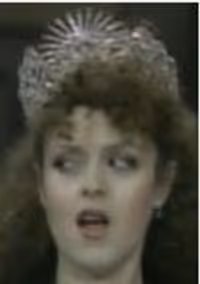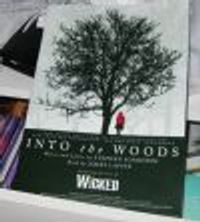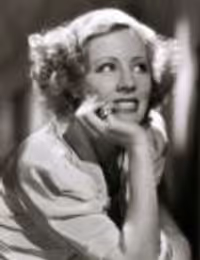RENT and the AIDS movement
#1RENT and the AIDS movement
Posted: 7/1/12 at 12:03amHow important was RENT in giving the AIDS movement a 'voice'? 1996 seems like it might have been a couple of years too late, but it did win a pulitzer prize and run for a long time. Was it considered 'groundbreaking' at the time?
ghostlight2
Broadway Legend Joined: 12/5/04
#2RENT and the AIDS movement
Posted: 7/1/12 at 12:25am
A "couple years" too late? The Normal Heart was 1985. I don't think Rent was very important in terms of giving the AIDs movement a voice, no.
Updated On: 7/1/12 at 12:25 AM
Jon
Broadway Legend Joined: 2/20/04
FindingNamo
Broadway Legend Joined: 7/22/03
#3RENT and the AIDS movement
Posted: 7/1/12 at 12:38am"Actual reality, ACT UP, Fight AIDS!" seemed very nostalgic in 1996, when RENT opened. It was a look back at semi-recent history.
#4RENT and the AIDS movement
Posted: 7/1/12 at 1:42amreNt was way too late to be part of the AIDS movement, and really had nothing to say. The Normal Heart and Angels In America spoke more about AIDS than reNt ever wil.
Bwaydide92
Leading Actor Joined: 5/16/12
#5RENT and the AIDS movement
Posted: 7/1/12 at 4:26amRENT also doesn't really address anything besides having AIDs. There are no moments where safe sex is encouraged (actually the opposite happens in Contact). I think it's biggest contribution was keeping AIDs a relevant subject.
#6RENT and the AIDS movement
Posted: 7/1/12 at 10:24amUnlike Angels In America and The Normal Heart, Rent showed straight characters with HIV.
#7RENT and the AIDS movement
Posted: 7/1/12 at 10:33amAlways felt Rent was a nostalgic Hallmark vision of AIDs. Hardly a voice.
#8RENT and the AIDS movement
Posted: 7/1/12 at 10:47amRENT's success may have had some small degree of social impact in terms of honoring sexual diversity. But hardly any if at all in terms of fighting AIDS, although, of course, it may have raised the consciousness of some in the audience about AIDS.
#9RENT and the AIDS movement
Posted: 7/1/12 at 10:54amIts impact was thousands of kids wishing they could have had AIDS in the 80s.
#10RENT and the AIDS movement
Posted: 7/1/12 at 2:36pmEven if it was, in '96, a look back at a recent history (things like the use of the phrase "living with"), I think one of the biggest things in did in terms of this was open that history up to the younger people who were coming to see it. And I think you can say what you want about the particular imagery Rent portrays, and agree or disagree with it, but it's hard to underestimate the power of putting that into a generation's consciousness. Not everyone saw The Normal Heart at 17, but a lot of people saw Rent at 17. Or even younger. And no, it wasn't one of the first to deal with the subject, and I have seen it considered part of the so-called "second generation" of AIDS plays/literature -- but I think with something AIDS, it's hard to consider anything "too late" as long as we're still dealing with it. You can do Angels in America today and still have an impact. Just by way of example.
Unknown User
Joined: 12/31/69
#11RENT and the AIDS movement
Posted: 7/1/12 at 2:51pm
I know of a youth theatre group that put on RENT about a few years ago and what they learned was immeasurable. They went out of their way to invest their time and research on the subject, doing projects about artists we've lost along the way due to AIDS- and went further along as to join the AIDS walk that summer in their city. So if anything, it is hopefully sending a message to those kids and groups who truly are investing their time to do the show the right way, and it is affecting a post-Rent generation, if anything.
I remember Falsettos being more of an impact in the theatre crowds--but RENT was a global phenomenon where they even made it to the cover of national magazines- (not since 'A Chorus Line' has a show done that)- so it made the impact it needed to make to bring the subject up in homes across the country, at least. But it didn't give it a 'voice'.
#12RENT and the AIDS movement
Posted: 7/1/12 at 4:54pmI have talked to parents who saw rent when it first opened on Broadway and are now taking their kids to see the revival because they feel it is something important for them to see.
Phyllis Rogers Stone
Broadway Legend Joined: 9/16/07
#13RENT and the AIDS movement
Posted: 7/1/12 at 4:55pm
There are no moments where safe sex is encouraged (actually the opposite happens in Contact)
Wait, what?
#14RENT and the AIDS movement
Posted: 7/1/12 at 4:57pmWhat came first? Wanting to do a musical with a focus on AIDS and living in alphabet city or wanting to tell the story of La Boheme in a current style?
#15RENT and the AIDS movement
Posted: 7/1/12 at 5:03pm
^^^^ Good for that theater group and their director. I don't doubt that was a valuable experience.
But we are kidding ourselves if we think live theater has been a major cultural influence since roughly the time of OKLAHOMA! Maybe HAIR if we stretch the word "major".
Americans have 900 channels and spend as much time watching TV as they do sleeping. If they are young enough to be dating, they add on 6 or 8 hours at the multiplex on the weekend. God only knows how much time they spend blowing up imaginary characters in video games.
Theater does not matter.
I'd be very surprised if anyone who saw the original production of THE NORMAL HEART was unaware of the AIDS epidemic. Maybe when the play got to the Boise Community Theater, but even then I doubt it.
As Jordan points out very wittily above, RENT romanticizes dying (or momentarily appearing to die) young, just as LA BOHEME did before it. It didn't actually change lives, though I get that young people REALLY, REALLY, REALLY liked it! They told me so everyday for years.
ANGELS IN AMERICA was exciting because it seemed for a few weeks that theater had the American attention once again. But by the second round of Tony Awards, it remained a great play, but as a cultural event it was hard to tell it from any other well-written play. And quick: everybody name what Kushner has written since (other than CAROLINE).
Theater does not matter.
Except to those of us who love it and we have to accept that we are enough.
Gothampc
Broadway Legend Joined: 5/20/03
#16RENT and the AIDS movement
Posted: 7/1/12 at 5:09pm
The thing to remember about Rent is that it was late to the game on everything. The East Village was nothing like how it was portrayed in Rent. It was already on its way to sanitized gentrification.
Regarding AIDS, at the time, the only thing to come out of it was "people living with, not dying from, AIDS." It did give that message of hope. The musical's strongpoint was stressing "forget regret..."
The show currently stands as a museum piece with Roger and Mimi's beepers going off and "AZT break". It marks how far drug therapy has come since that time.
#17RENT and the AIDS movement
Posted: 7/1/12 at 5:14pm
Unlike Angels In America and The Normal Heart, Rent showed straight characters with HIV
And yet, if we're sticking to the HIV-positive characters, there's only hope for the straight couple, the HIV-positive gay couple is doomed. You can argue it was revolutionary to include the words AIDS/HIV in a Broadway show (and as others pointed out, RENT was not the first show to do so), and over the years I've realized that despite all my issues with the show it has had an impact in terms of creating some sort of visibility, but ultimately the show romanticizes a life that is hardly romantic. Compare RENT to something like ANGELS IN AMERICA, a play that shows the harsh reality of living with HIV/AIDS in a very visceral, real way while still having heart, wit, humor, and hope.
FindingNamo
Broadway Legend Joined: 7/22/03
#18RENT and the AIDS movement
Posted: 7/1/12 at 5:19pm
As far as musicals go, RENT did a much better job of representing what life was like for people with AIDS than the Broadway version of Falsettos did.
Also, by the time of the Broadway opening, either Poz or Art & Understanding pointed put how retro the AZT reference felt. They wondered why a protease inhibitor reference couldn't have been inserted.
Bwaydide92
Leading Actor Joined: 5/16/12
#19RENT and the AIDS movement
Posted: 7/1/12 at 5:20pmPhyillis, during Contact they say something like "contact yes, rubber no." I'm not sure about the exact lyrics, but it does seem to encourage what today is called "bareback" sex, which is a very poor way of protecting yourself from STDs
#20RENT and the AIDS movement
Posted: 7/1/12 at 5:29pm
Despite my downer of an essay above, I forgot to mention one point. In playwright Luis Valdez' personal manifesto, he says a play (he's speaking of his "actos", for those who know his work) should "express what people are thinking."
When I first read it, that struck me as a pretty wimpy point in a revolutionary manifesto.
But now I think it may be the most important function of live theater. As I said, I don't believe THE NORMAL HEART changed one mind, but it did provide a social space in which people affected by the epidemic could come together with others who were feeling as they did. And that's no small accomplishment.
Maybe theater matters a little, after all.
Phyllis Rogers Stone
Broadway Legend Joined: 9/16/07
#21RENT and the AIDS movement
Posted: 7/1/12 at 5:31pmI always thought Contact was about the frustrations of safe(r) sex, not advocating against it.
Bwaydide92
Leading Actor Joined: 5/16/12
#22RENT and the AIDS movement
Posted: 7/1/12 at 5:37pmTo me it's always seemed like safe sex just wasn't worth it. That the risk of catching something is worth the extra pleasure. I think Contact tried to be about the frustrations, but I son't feel it comes off that way. It's one of those songs that needed more re-working, but unfortunately they didn't touch the show after Larson's untimely death.
#23RENT and the AIDS movement
Posted: 7/1/12 at 6:06pmWell, my friends who died were mostly all dead by then, so, no.
#24RENT and the AIDS movement
Posted: 7/1/12 at 6:15pm
Mine, too, Joey. Mine, too.
In fact 1993, the year before RENT opened, seemed to be the epidemic's last hurrah (at least so far) in terms of friends and relatives dying young.
Videos











